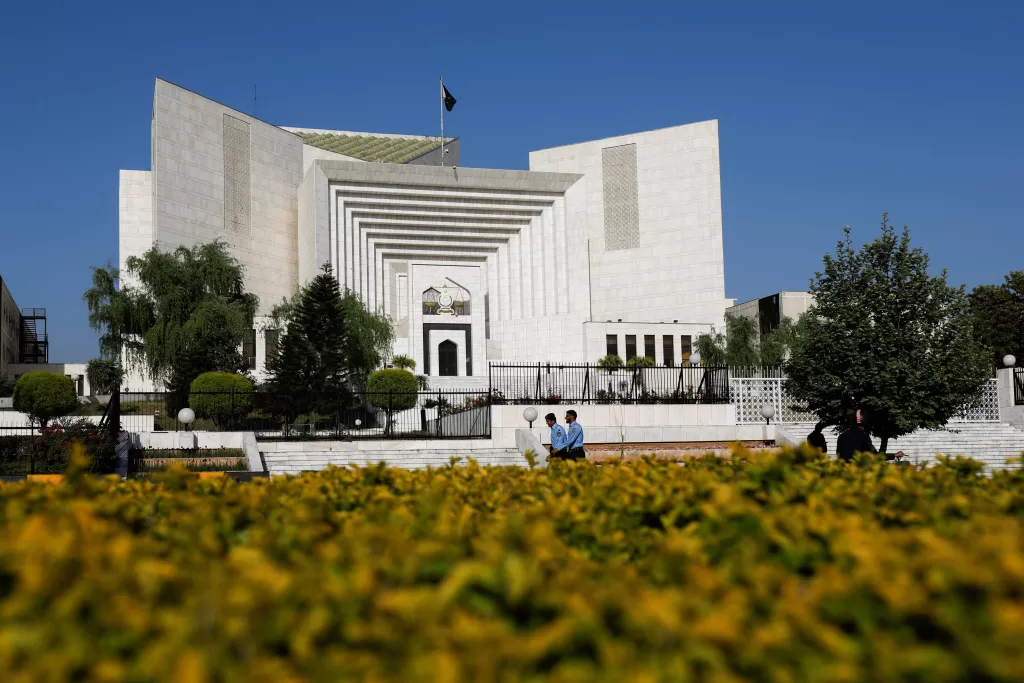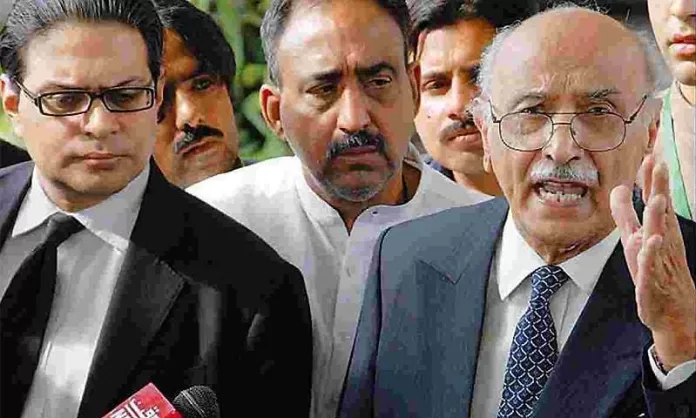Air Marshal (Retd) Asghar Khan waited sixteen years for judgment on the petition he filed in 1996 in the Supreme Court (SC) regarding the illegal funding of politicians in the 1990 elections. Authored by Chief Justice lftikhar Muhammad Chaudhry, the detailed verdict concluded the elections were rigged against the PPP and that (then) President Ghulam Ishaq Khan, with help of former Army Chief Gen (Retd). Aslam Beg and former Director General MI (and later) ISI, Gen (Retd) Asad Durrani, had used army officers to support the “Election Cell” set up illegally in the Presidency.
This bold landmark judgement should serve notice on the country’s political class, the military and the bureaucracy not to obey “unlawful commands”, that the action by the two retired generals was in their personal capacity, to quote, “they participated in the unlawful activities of the Election Cell in violation of the responsibilities of the Army and ISI as institutions which is an act of individuals but not of institutions represented by them respectively.”
On March 22 this year, to quote my article MIXING FACTS WITH ILLU-SION, “the ISI did not distribute funds to politicians in 1990 but it was the MI that did. The Honourable Chief Justice (CJ) had taken this perception to be a fact, but that was wrong. A technicaity maybe, but it must be corrected’ On the receiving end from vested external factors (and their local partners), its gives more ammunition to ISI’s detractors. To quote further, “Asad Durrani tasked Regional Director MI in Karachi, Brig Hamid Saeed, for spreading the largesse in Sindh and Balochistan. The MI officers assumed the Rs 14 crore that came into the specially opened six accounts came from GHQ. Both Hamid Saeed and Mir Akbar had never met Younus Habib, they were unaware he was the source of the funds. The illegal trans-actions took place from mid Sep 1990 when the funds were received (only about Rs 3 crore went to political figures, Rs 36 lacs went to non-political figures). It ended 5-6 weeks later around the 3rd week of Oct 1990 when the balance of the Rs 14 crore, approx. Rs 6.50 crore, was sent back to GHQ (Rs 4 crore being returned earlier). The reason for the confusion between perception and fact is proba-bly because by mid Oct 1990 Asad Durrani was promoted to Lt Gen and posted as DG ISI, an appointment he held concurrently for some time with his DG MI post. The distribution of funds to politicians was over by then. Col Mir Akbar, who actually operated the six accounts and personally disbursed most of the funds, subsequently replaced Col Sajjad the ISI Head in Karachi, on posting from MI to ISI on Asad Durrani’s request. Around the end of Oct, Hamid Saeed ren-dered final accounting to Durrani, who was by this time DG ISI, about the funds disbursed, the balance money was refunded. While MI officers were involved more as individuals rather than the MI as an institution, this was definitely not an ISI operation. Respectfully, the SC should correct this wrong perception.” Unquote.
To quote further, “While in service all three MI officers carried good reputation for being upright soldiers of good integrity and character. Though the instructions came from the COAS through the DGMI, it did fall in the grey area of being an “unlawful command”, these officers must have been convinced that the operation was necessary, because of the request for “in camera” proceedings one can only guess that national security reasons will eventually be cited as the “extenuating circumstances”. A meticulous person of out-standing merit, Hamid Saeed is incapable of telling a lie. Though he has had five stents put in his heart in a two stage operation about nine months ago, the Supreme (SC) should call this outstanding soldier (and citizen) to testify, his Lordships will find this dispassionate man’s heart in the right place.”

When he finally did appear before the SC this October, Hamid Saeed handed over a 21-year old diary in the court with details, the court made clear that no agency has any role to play in the political affairs of the country, such as the formation or destabilisation of a government, or interference in any elections. The credit obviously goes to the judiciary not only for exposing details of the unholy nexus between politicians, the military and the intelligence agencies and the fact that it is sometimes detrimental to our national interests. The SC must be commended for eventually bringing a closure to such a case, a first of its kind and per-haps unheard of in the past. For its part, the ISI is subjected to all sorts of pressures by external forces for their own ulterior motives, some among our media usually joining in like a pack of hounds when they should know better.
The mudslinging between the ruling PPP and the opposition PML(N) because of the verdict is further mud-dying the already murky politics in the country. Dwelling at length on the role of the President the verdict speaks about cleansing of the President’s House of political activities, SC obliquely pointing fingers at President Asif Zardari is bound to affect his position, virtually deciding the out-come of the contempt case against him in The Lahore Court for holding dual office. Will Zardari back down in grossly violating the Constitution? Or carry on the business of buying the elections, as usual?
Challenges still lie ahead. The SC ordered legal action against the two former generals of the Army, ordering FIA to initiate a transparent enquiry against politicians who received ‘donations’. Will punitive action be taken against everyone who the SC identified as committing crimes? Or will only the army be targetted and for good measure the ISI? The army has no grounds to try these officers by court martial, the government may blow hot but on what legal grounds will it try to punish the few officers? The interpretation of “unlawful command” may be correct for the SC in respect of the then COAS and ISI chief, but there are ambiguities because of the stated national security reasons. Below that the level the SC interpretation of what constitutes an “unlawful command” could affect the discipline of the Armed Forces, “barrack room lawyers” can potentially challenge every command given to them under the pretext of it being “unlawful”. Does the Honourable Chief Justice want lawyers attached to every unit to deter-mine the status of each and every command, whether lawful or unlawful?
Only the future will tell whether Armed Forces personnel will be more careful before getting involved in such adventures. While the verdict evoked a lot of hope about the rule of law, whether it will prove a watershed in the electoral history of Pakistan and whether any lessons will have been learnt by our politicians, generals and bureaucrats will soon be seen in the impending elections. The immediate constitutional requirement, the ball is now firmly in the court of the Chief Election Commissioner Justice Fakhruddin Ebrahim. His acid test will be implementing the SC verdict on the simultaneously holding of political office by the President.
I, for one, doubt it!♦




